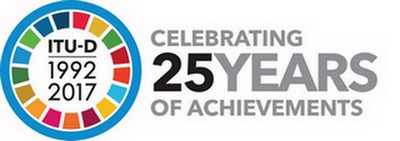
Connecting schools in the Comoros
| The Connect a School Connect a Community in the Comoros project was implemented by ITU and the Comoros Autorité Nationale de Régulation des TIC (ANRTIC) between 2015 and 2016 to promote broadband connectivity in schools in remote and rural areas of the Comoros.
Ten schools were equipped with computers and training programmes were provided to school children, teachers, as well as to members of the local community. The connected schools became knowledge centres for the local community, including disadvantaged and vulnerable groups such as women and girls and persons with disabilities who could use the knowledge to improve their socio-economic well-being. |
“We anticipate that the community in the area will come in large numbers to use the computers,” said Mohamed Omar, Director of one of the centres. “Through Internet connectivity they can access information. This project will also help create employment opportunities.”
“This ICT project was received well by the local community and they are satisfied with its outcome as they never had the opportunity before. It has made it possible to train teachers who will in turn teach the students and other members of the community,” said Asmina Said Ahmed, Head of the Project Management Department at ANRTIC.
Thailand’s Internet centres
| ITU and the National Broadcasting and Telecommunications Commission (NBTC) of Thailand have established more than 20 rural Internet centres nationwide. The centres strengthen ICT skills among students, youth and local communities, thereby promoting social and economic development. They are run by a group of volunteers known as NBTC-ITU Volunteers. “The computer and the Internet are very important for students”, says Pornchai Nachaiwiang, Principal of Ban Pang Kae School in Nan, northern Thailand. “Students have also been able to transfer the computer and Internet knowledge they have gained back to their families and communities and some are now able to use e-commerce platforms to buy and sell products.” |
“The computer and the Internet are very important for students”, says Pornchai Nachaiwiang, Principal of Ban Pang Kae School in Nan, northern Thailand. “Students have also been able to transfer the computer and Internet knowledge they have gained back to their families and communities and some are now able to use e-commerce platforms to buy and sell products.”
Boonyuen Pittayakannurut, a resident of the northern city of Chiang Mai, has also benefitted from better Internet access. “I have been able to research on how to protect my family against Dengue fever,” he says. “I have also shared the information I gathered with my neighbours and friends, many of whom did not know what measures to take against the disease.”
“Working with young children and adults, helping them navigate the world of computers and the Internet has been a great and a very memorable experience for me,” says Chanoksuda Wongvises, one of the NBTC-ITU Volunteers.
| The ITU Telecommunication Development Sector (ITU-D) marks its 25th Anniversary this year. ITU-D was established in 1992 by the Additional Plenipotentiary Conference that was held in Geneva. Over the past 25 years, the Sector has immensely contributed to the rapid growth and expansion of telecommunication/ICT networks and services. |